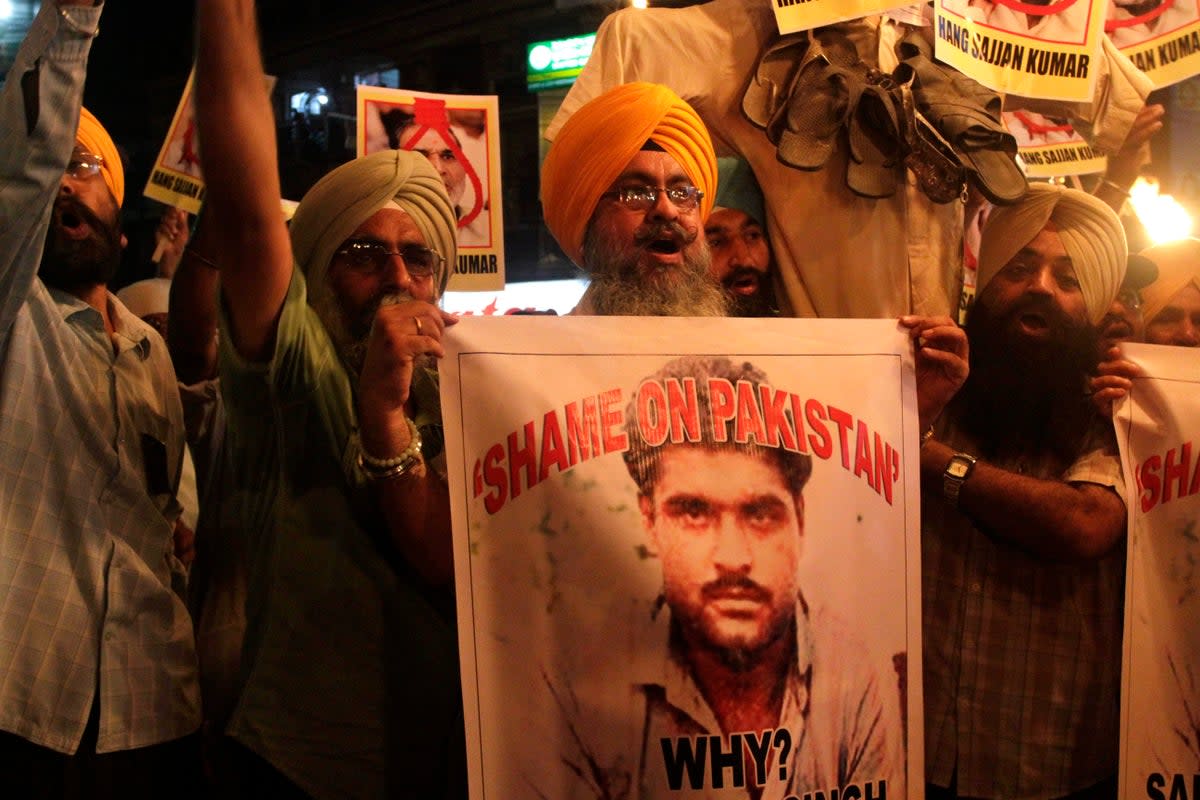Pakistan investigates killing of suspect in Indian prisoner Sarabjit Singh’s murder

Pakistan has launched an investigation after the fatal shooting of a man who was accused of killing Indian prisoner Sarabjit Singh inside a Lahore prison in 2013.
Amir Tamba, who was acquitted of killing the convicted Indian spy, was shot by two masked men inside his home, police in Lahore said.
Singh, an Indian national from Punjab, was arrested by Pakistani border guards in 1990 and tried on charges of espionage and terrorism. His family and the Indian government denied the charges while campaigners claimed his trial was unfair and that his confession had been extracted through torture.
Despite appeals for clemency and calls for his release from India, Singh was sentenced to death in Pakistan in 1991. Singh’s conviction and incarceration was a sore point between India and Pakistan, exacerbating already strained bilateral relations between the neighbours.
He remained in prison until he was killed in an attack by fellow prisoners in Lahore’s Kot Lakhpat jail in 2013.
Tamba was one of the two inmates who were accused of attacking Singh with bricks inside the jail. Both were acquitted by a Pakistan court in 2018 after witnesses retracted their statements.
The deputy inspector general of police in Lahore, Ali Nasir Rizvi, said gunmen entered Tamba’s house and shot him multiple times before fleeing on a motorbike.
Army and intelligence officials reached the site and removed Tamba’s body, taking it to the city’s Combined Military Hospital.
Mr Rizvi said a case had been lodged against unidentified assailants but gave no further information, including a possible motive for the attack.
Tamba’s killing comes amid reports that Indian agents carried out extrajudicial killings of wanted men in Pakistan. A report by the Guardian, citing Indian and Pakistani intelligence officials, claimed that Indian operatives have been involved in attacks on at least 20 people in Pakistan since 2020.
India has denied the allegations as “false and malicious anti-India propaganda”.


